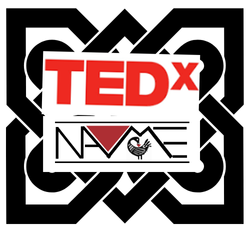

Positive Academic Identities
Click the EVIDENCE links for annotated bibliographies of supporting research. Students perceive themselves and members of their own identity groups as intellectually capable and able to achieve at very high levels. They connect their own knowledge and sense of purpose with challenging academic skills and concepts. They are able to use tools of inquiry to ask questions, develop informed opinions, and co-construct knowledge with peers and adults, and they communicate knowledge clearly, using multiple forms of communication. Students use these academic skills to develop social justice in their schools and communities.
Students perceive themselves and members of their own identity groups as intellectually capable and able to achieve at very high levels. They connect their own knowledge and sense of purpose with challenging academic skills and concepts. They are able to use tools of inquiry to ask questions, develop informed opinions, and co-construct knowledge with peers and adults, and they communicate knowledge clearly, using multiple forms of communication. Students use these academic skills to develop social justice in their schools and communities.
EVIDENCE shows that students of color, English language learners (including those from poverty backgrounds), and girls can learn to perceive themselves and members of their own socio-cultural background as intellectually capable and able to achieve at very high levels, when teachers hold high expectations of them, build supportive family-like relationships with them, connect the curriculum to what they know outside school, and use active teaching strategies that are personalized to fit the students.
- What this looks like in Pang Xiong's third grade classroom
EVIDENCE shows that students of color can learn to connect their own knowledge and sense of purpose with challenging academic skills and concepts when the curriculum and pedagogy explicitly build on their experiences and cultural frames of references from their lives outside school.
- How elementary school teacher Marisol Moreno does this
EVIDENCE shows that students of color can learn to use tools of inquiry to ask questions, develop informed opinions, co-construct knowledge with others, communicate knowledge clearly using multiple forms of communication, and use academic skills to develop social justice consciousness action in their schools and communities when curriculum and pedagogy are explicitly designed to teach these skills in relationship to what students already know and care about.
EVIDENCE shows that students can learn to express pride, confidence and healthy self-esteem without denying the value and dignity of other people, through a curriculum, pedagogy and classroom relationships that affirm their ethnic, racial, gender, and other identities.
JUMP to these Student Outcomes:  Positive social identities
Positive social identities Respectful engagement with diverse people
Respectful engagement with diverse people Social justice consciousness
Social justice consciousness![]() Social justice action
Social justice action
FIND additional resources on these pages:



